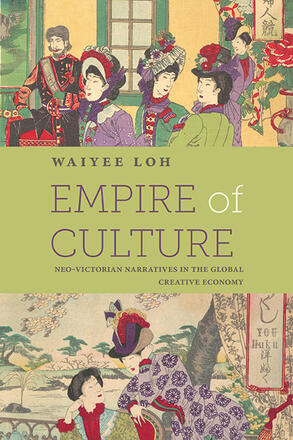
Empire of Culture
Neo-Victorian Narratives in the Global Creative Economy
Alternative formats available from:
Shows how Britain's trans-imperial engagements in the long nineteenth century have come to shape global cultural commodity flows today.
Description
Empire of Culture brings together contemporary representations of Victorian Britain to reveal how the nation's imperial past inheres in the ways post-imperial subjects commodify and consume "culture" in the late twentieth and early twenty-first centuries. The globalization of English literature, along with British forms of dress, etiquette, and dining, in the nineteenth century presumed and produced the idea that British culture is a universal standard to which everyone should aspire. Examining neo-Victorian texts and practices from Britain, the United States, Japan, and Singapore—from A. S. Byatt's novel Possession and its Hollywood film adaptation to Japanese Lolita fashion and the Lady Victorian manga series—Waiyee Loh argues that the British heritage industry thrives on the persistence of this idea. Yet this industry also competes and collaborates with the US and Japanese cultural industries, as they, too, engage with the legacy of British universalism to carve out their own empires in a global creative economy. Unique in its scope, Empire of Culture centers Britain's engagements with the US and East Asia to illuminate fresh axes of influence and appropriation, and further bring Victorian studies into contact with various sites of literary and cultural fandom.
Waiyee Loh is Associate Professor of World Literature at Kanagawa University, Japan.
Reviews
"This is a wonderful, wide-ranging book that draws together an incredible array of ideas and sources from different locations, points in history, textual and cultural traditions, and scholarly disciplines. With strong grounding in comparative literary studies and transnational pop culture studies, Loh develops a genuinely innovative argument and approach." — Lucy Fraser, author of The Pleasures of Metamorphosis: Japanese and English Fairy Tale Transformations of "The Little Mermaid"